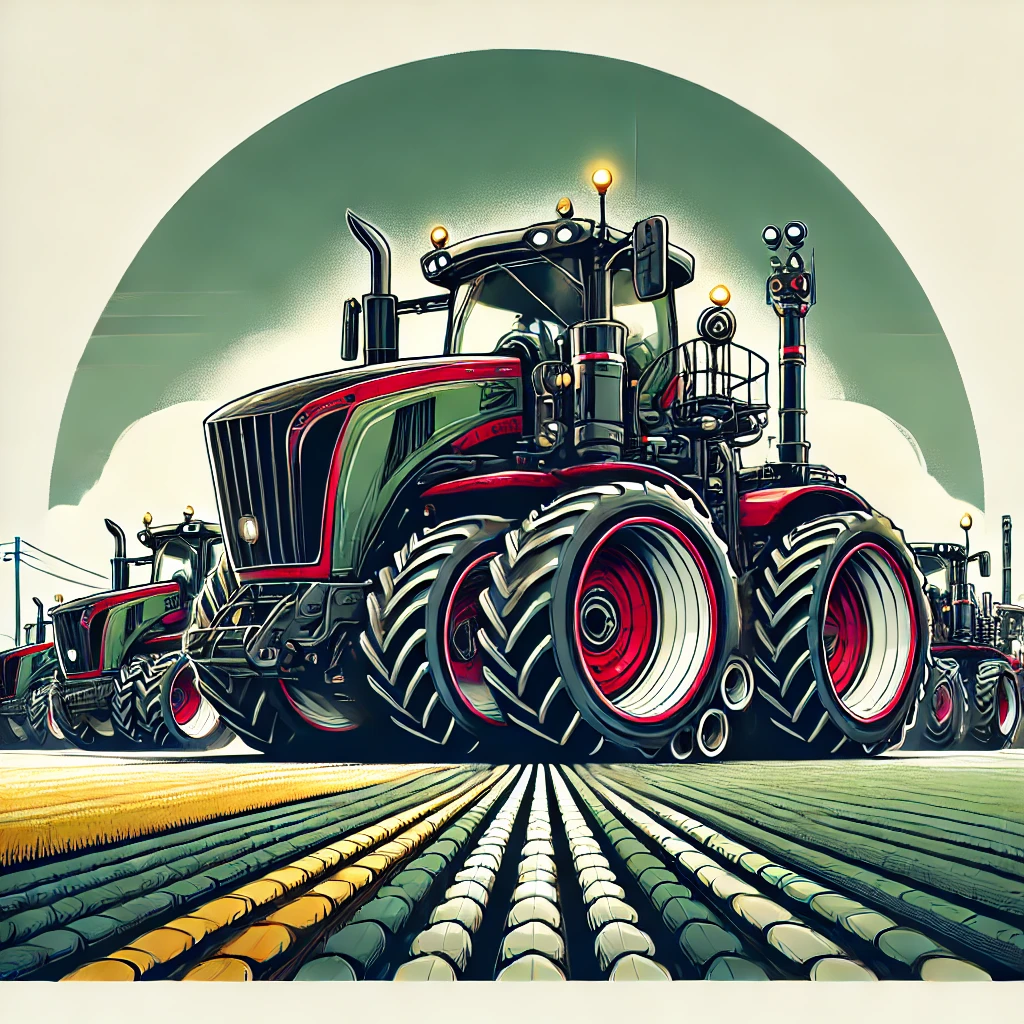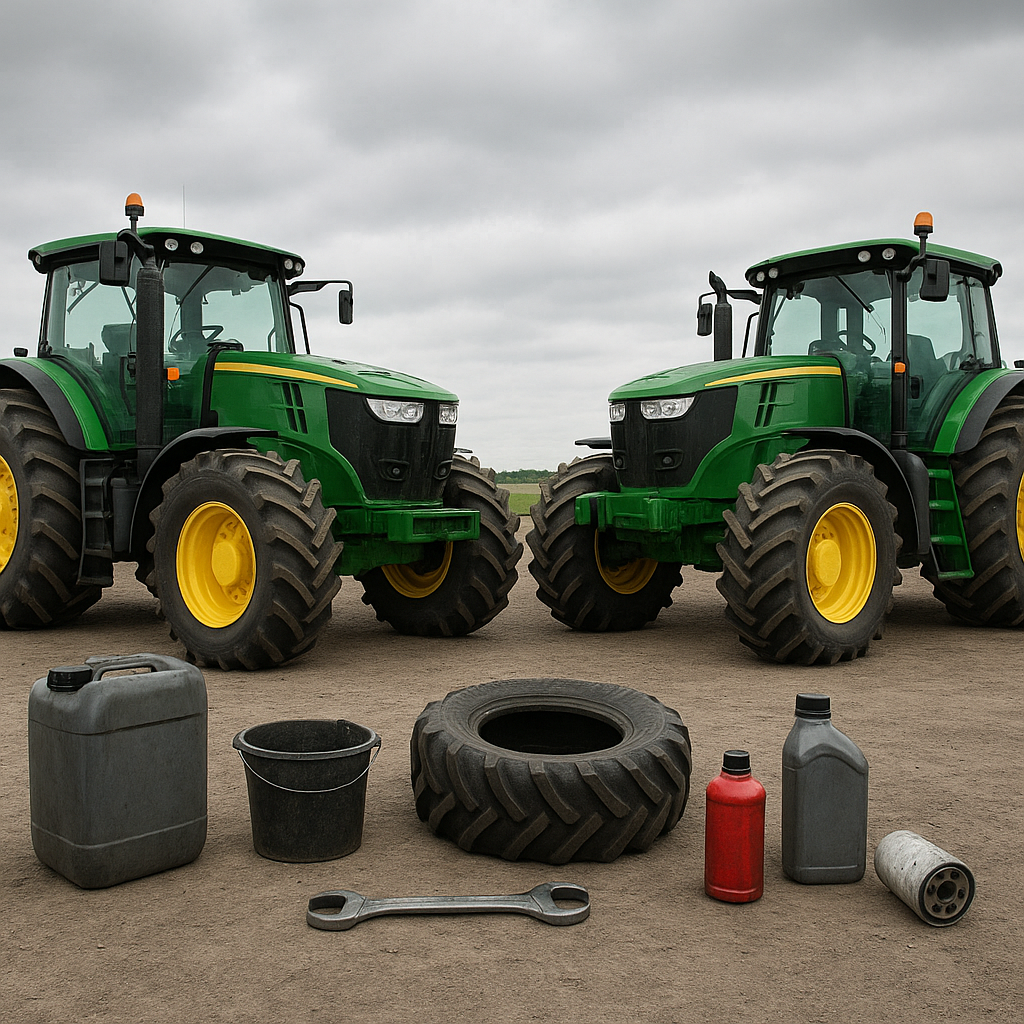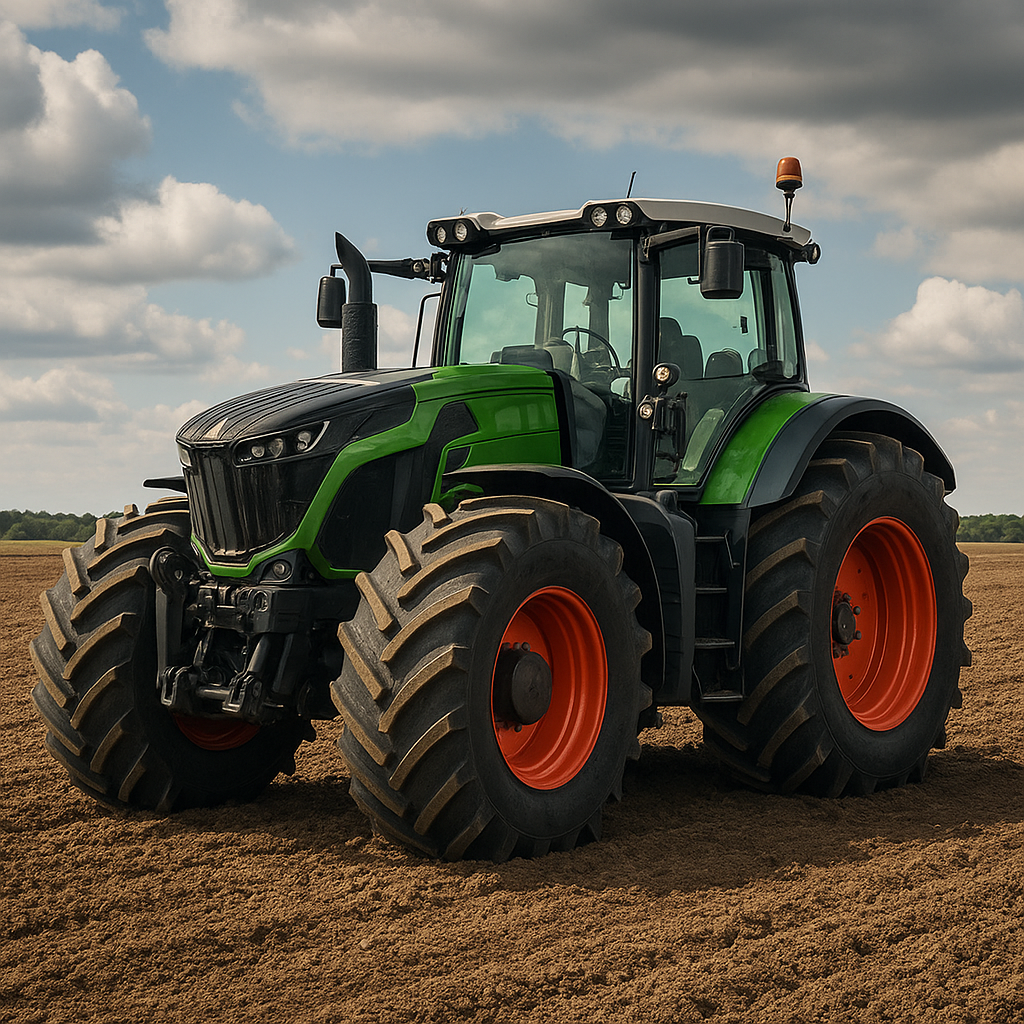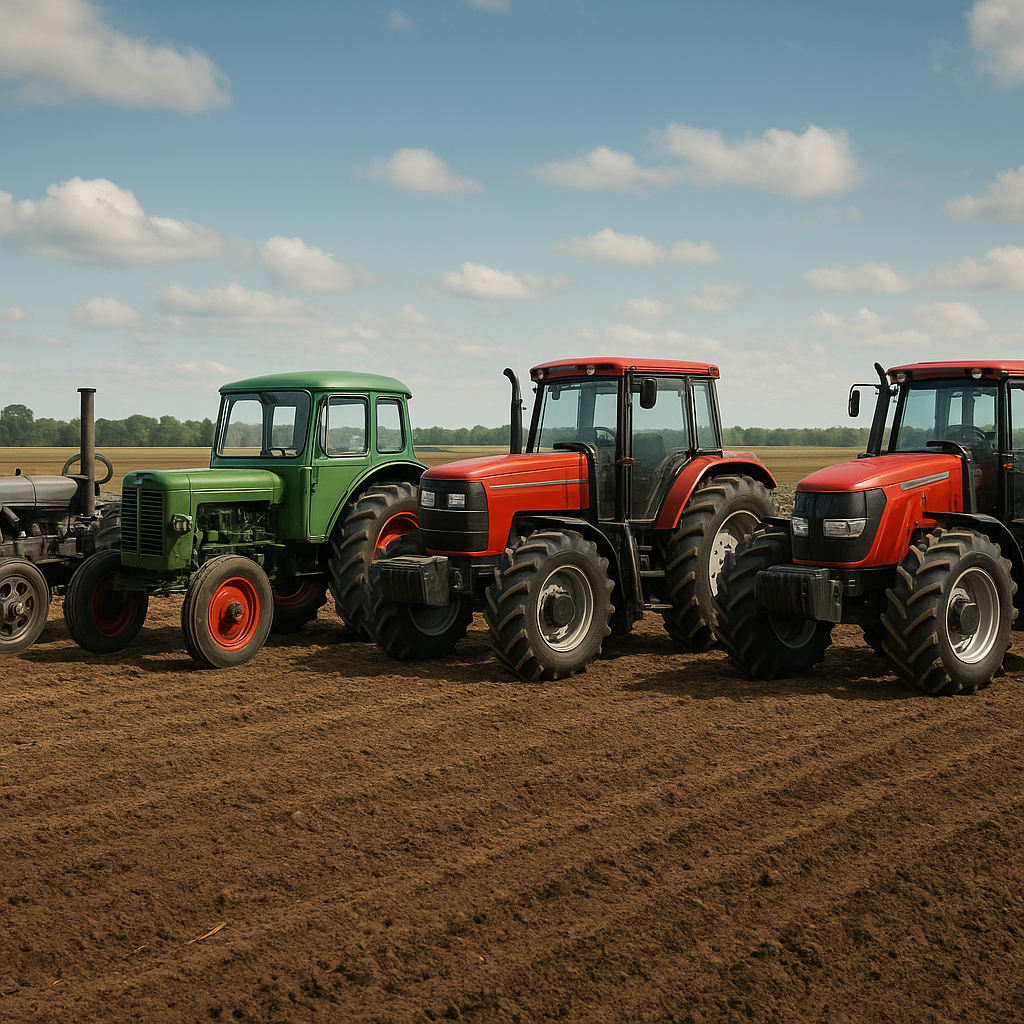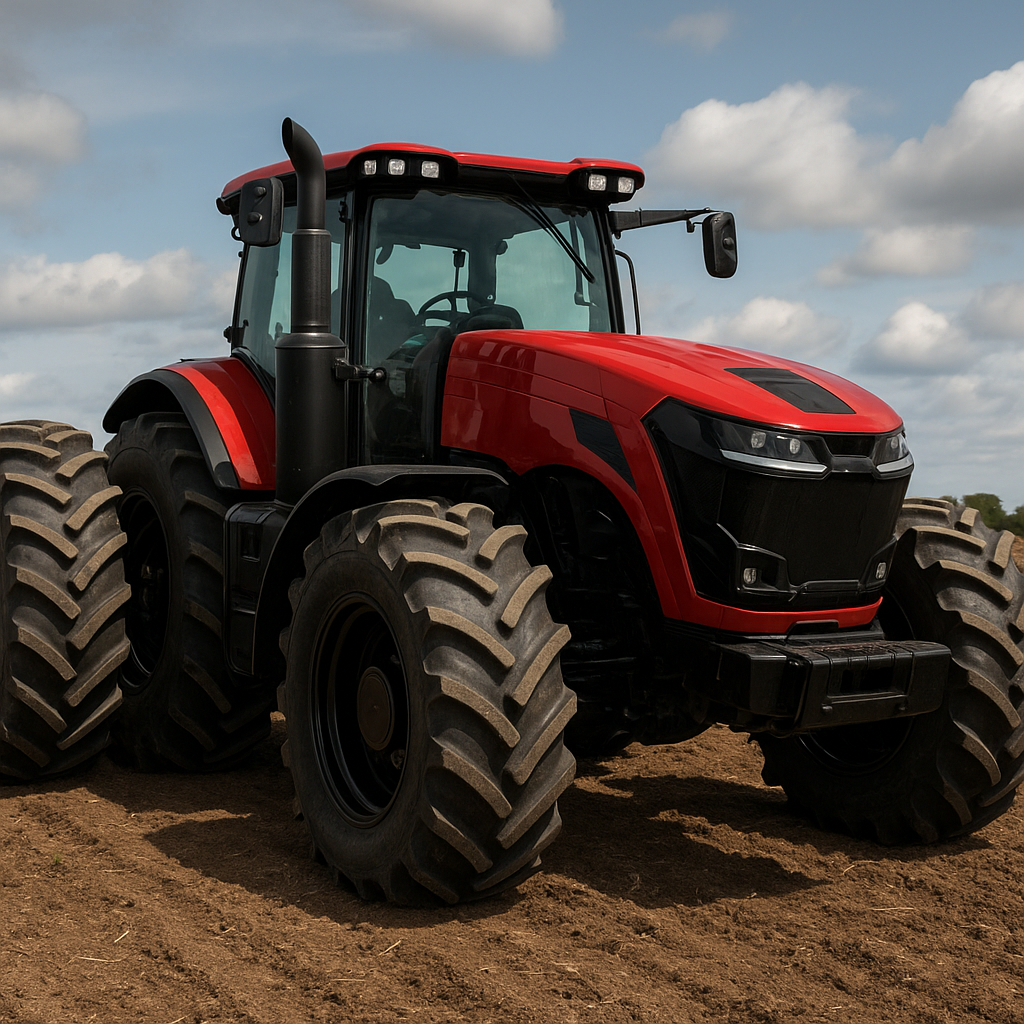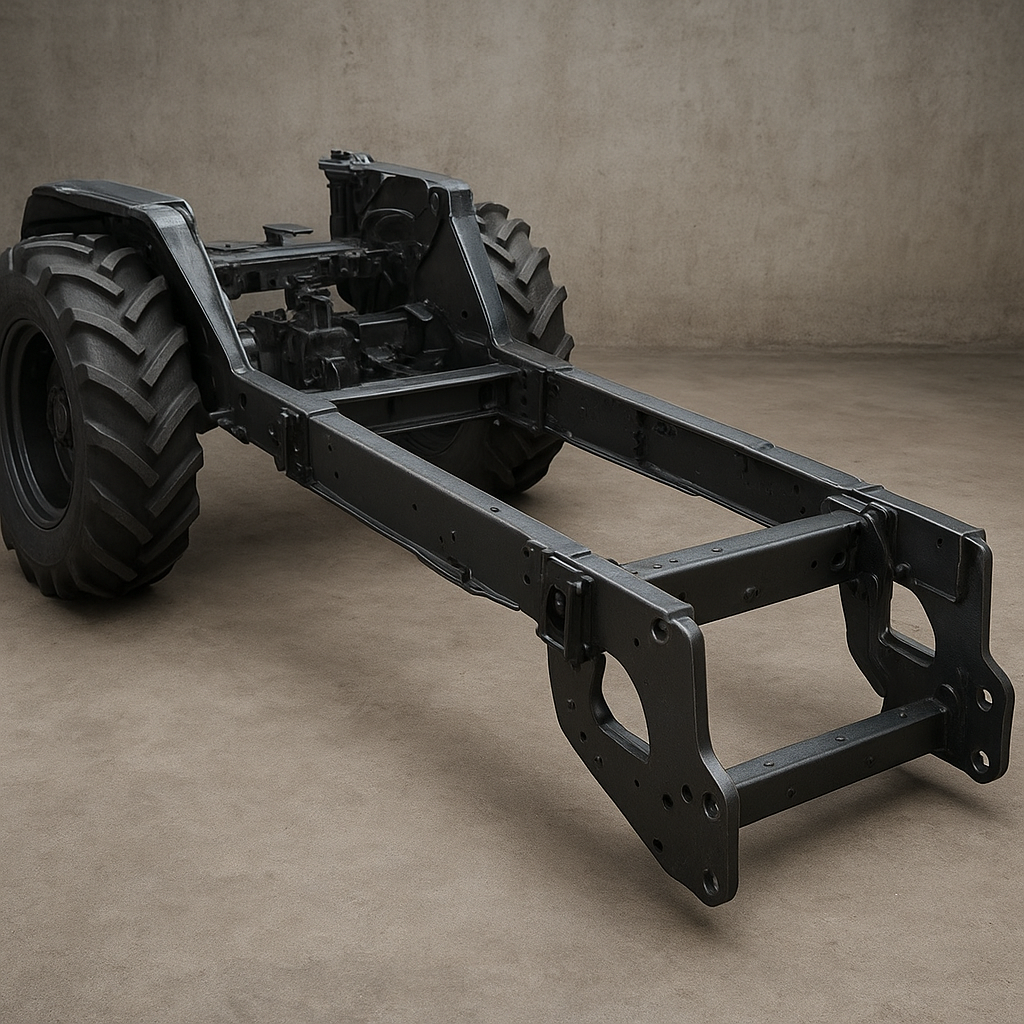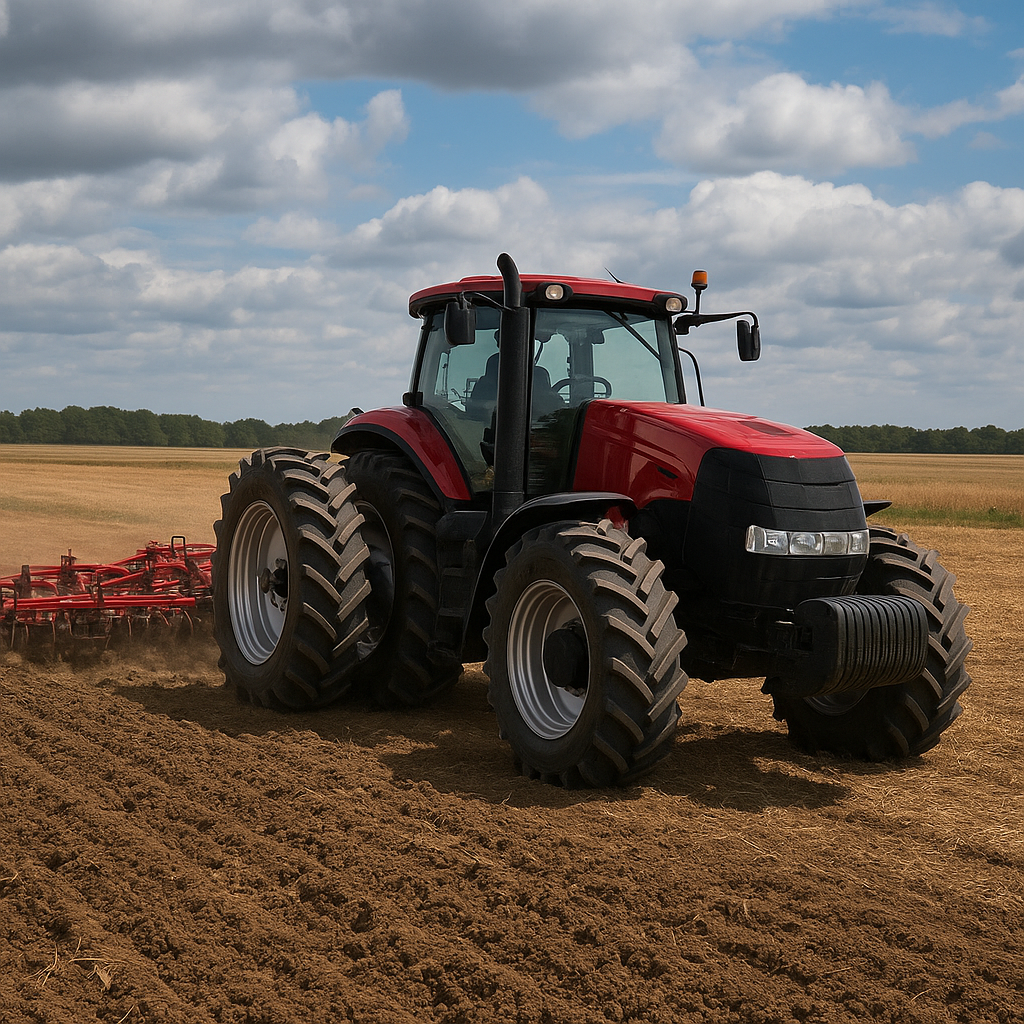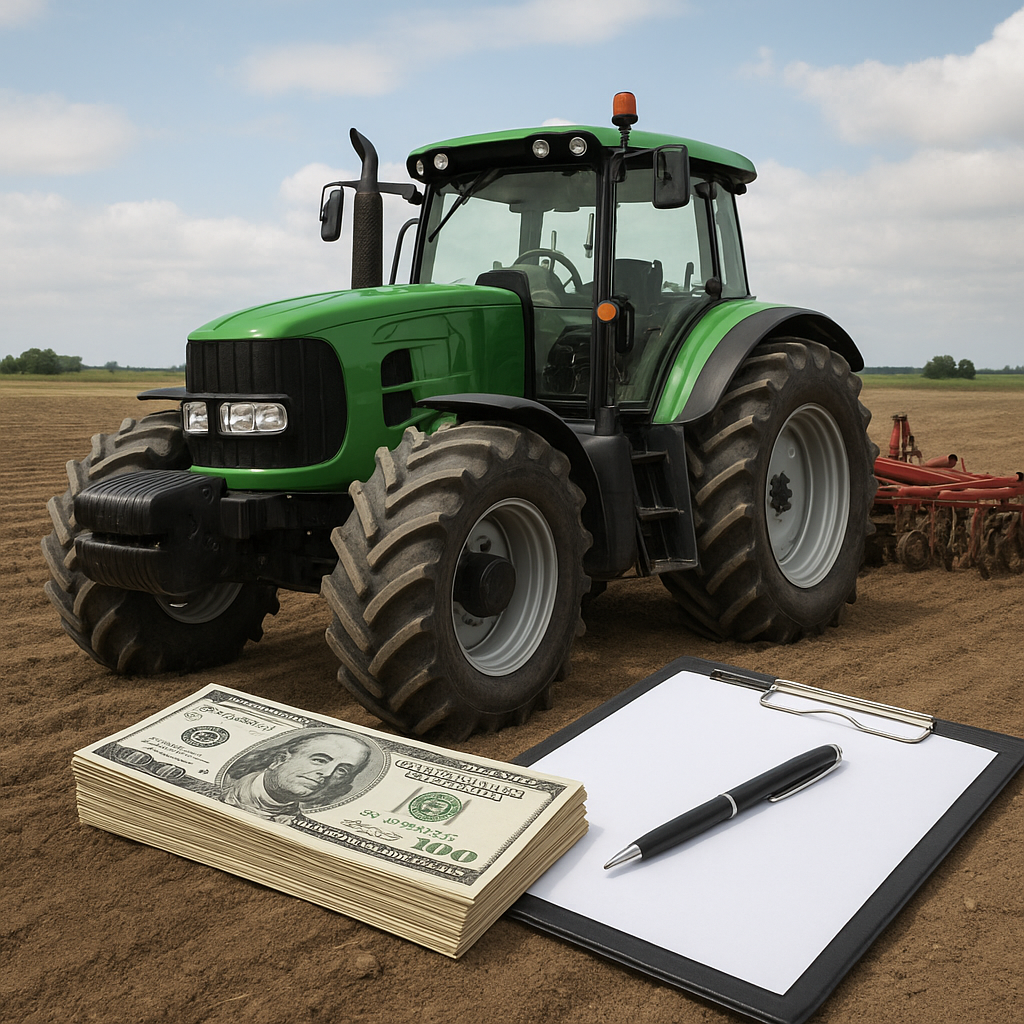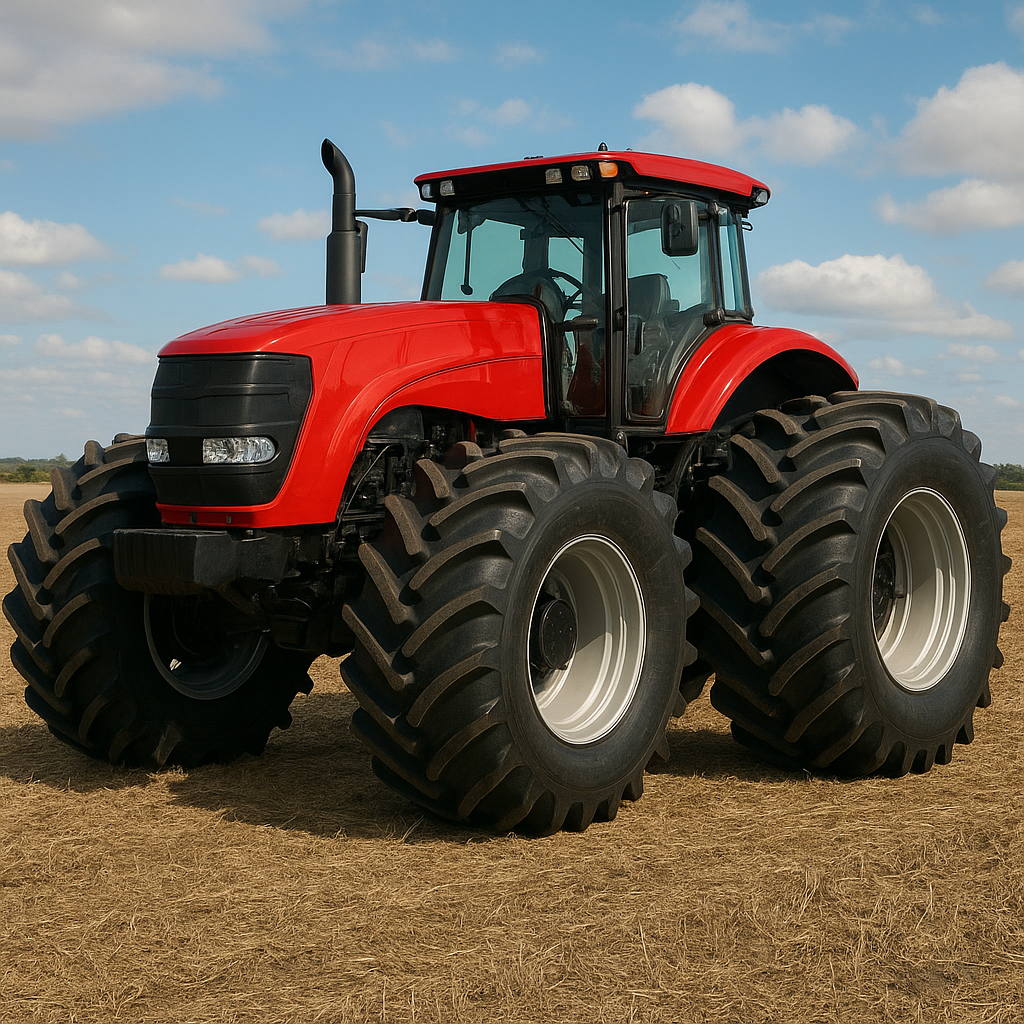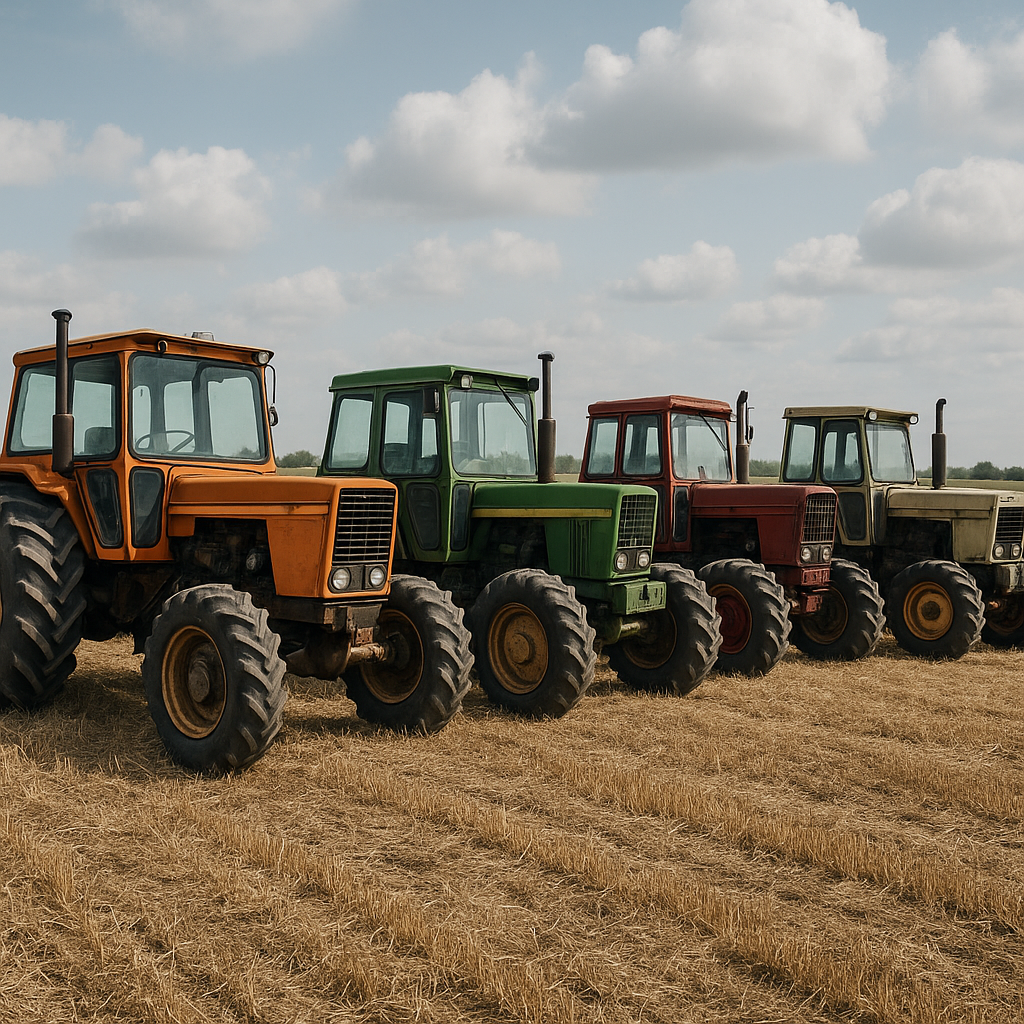When it comes to choosing the right tractor for your farm, the decision often boils down to two main types: track tractors and wheeled tractors. Each type has its own set of advantages and disadvantages, making the choice highly dependent on the specific needs and conditions of your farm. In this article, we will delve into the key differences between track tractors and wheeled tractors, helping you make an informed decision on which is best for your agricultural operations.
Track Tractors: Power and Precision
Track tractors, also known as crawler tractors, are equipped with continuous tracks instead of wheels. These tracks provide several benefits that make them particularly suited for certain farming conditions.
Advantages of Track Tractors
One of the most significant advantages of track tractors is their superior traction. The continuous tracks distribute the tractor’s weight more evenly across a larger surface area, reducing soil compaction and providing better grip on soft or uneven terrain. This makes track tractors ideal for fields with loose soil, mud, or steep inclines.
Another benefit is the enhanced stability and balance that track tractors offer. The wide base of the tracks lowers the center of gravity, making these tractors less likely to tip over when navigating challenging landscapes. This stability is particularly valuable when working on slopes or carrying heavy loads.
Track tractors also excel in terms of pulling power. The increased traction allows them to pull heavier implements and perform tasks that require significant force, such as deep plowing or subsoiling. This makes them a preferred choice for large-scale farming operations that demand high levels of productivity and efficiency.
Disadvantages of Track Tractors
Despite their many advantages, track tractors do have some drawbacks. One of the primary concerns is their cost. Track tractors are generally more expensive to purchase and maintain compared to wheeled tractors. The tracks themselves can be costly to replace, and the specialized components may require more frequent servicing.
Another disadvantage is the reduced speed and maneuverability of track tractors. The continuous tracks are not as fast as wheels, making these tractors slower when traveling between fields or along roads. Additionally, the larger turning radius can make them less agile in tight spaces, which may be a limitation for smaller farms or operations with confined areas.
Wheeled Tractors: Versatility and Speed
Wheeled tractors are the more traditional choice and are equipped with rubber tires. They are known for their versatility and are widely used in various farming applications.
Advantages of Wheeled Tractors
One of the main advantages of wheeled tractors is their versatility. They can be used for a wide range of tasks, from planting and harvesting to transporting goods and materials. The ability to switch between different implements and attachments makes wheeled tractors highly adaptable to changing farming needs.
Wheeled tractors also offer greater speed and maneuverability compared to track tractors. The rubber tires allow for faster travel between fields and along roads, making them more efficient for farms with multiple plots of land. The smaller turning radius of wheeled tractors enhances their agility, making them easier to operate in confined spaces or around obstacles.
Another benefit is the lower cost of ownership. Wheeled tractors are generally less expensive to purchase and maintain. The tires are easier and cheaper to replace compared to tracks, and the overall maintenance requirements are typically lower.
Disadvantages of Wheeled Tractors
However, wheeled tractors do have some limitations. One of the main drawbacks is their reduced traction on soft or uneven terrain. The rubber tires can sink into loose soil or mud, leading to increased soil compaction and reduced efficiency. This makes wheeled tractors less suitable for fields with challenging ground conditions.
Wheeled tractors also have a higher center of gravity compared to track tractors, which can affect their stability. This makes them more prone to tipping over when working on slopes or carrying heavy loads. Farmers need to exercise caution and take appropriate safety measures when operating wheeled tractors in such conditions.
Making the Right Choice for Your Farm
When deciding between track tractors and wheeled tractors, it’s essential to consider the specific needs and conditions of your farm. Both types of tractors have their own set of advantages and disadvantages, and the best choice will depend on factors such as soil type, terrain, and the tasks you need to perform.
If your farm has soft or uneven terrain, or if you require significant pulling power for heavy implements, a track tractor may be the better option. The superior traction, stability, and pulling power of track tractors make them well-suited for challenging ground conditions and large-scale farming operations.
On the other hand, if versatility, speed, and lower cost of ownership are your primary concerns, a wheeled tractor may be the more suitable choice. The adaptability, faster travel speed, and easier maintenance of wheeled tractors make them ideal for a wide range of farming tasks and smaller or more diverse operations.
Ultimately, the decision between track tractors and wheeled tractors should be based on a thorough assessment of your farm’s unique requirements. By carefully considering the advantages and disadvantages of each type, you can make an informed choice that will enhance the efficiency and productivity of your agricultural operations.
